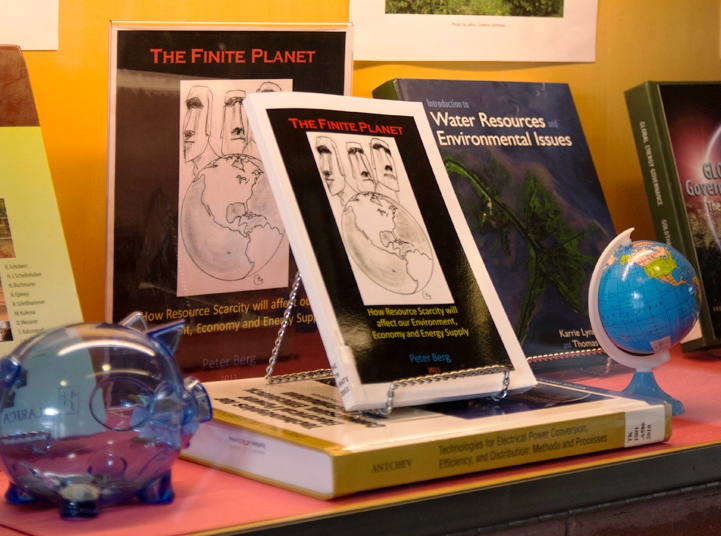UOIT professor’s new book ponders end of exponential global growth
October 27, 2011

In the aftermath of the Second World War, the world embarked on a path of seemingly infinite growth: expanding economies, bigger cities, higher energy consumption and huge advances in technology. But is never-ending exponential growth on a finite planet with limited resources something the world can truly sustain? Dr. Peter Berg, associate professor of Physics at University of Ontario Institute of Technology (UOIT), explores this troubling question and much more in his new book The Finite Planet.
“Many aspects of life in North America and the world are already being transformed,” explains Dr. Berg. “The fact of the matter is the Earth has limits in terms of its resources. Whether we consider the scarcity of fossil fuels, transportation demands in growing urban centres, population growth, the disappearance of agricultural land, climate change or shaky monetary systems, physical constraints are increasingly setting boundaries for the future development of our species.”
The Finite Planet warns that we may be closer than we think to the day when society’s long-held assumptions of infinite growth will change, and change dramatically. Dr. Berg’s thought-provoking book also explores where the solutions will need to come from and how they will need to be developed as we venture deeper into the 21st century. As Dr. Berg’s website proclaims: “Get ready for the ride of your lifetime…”
The Finite Planet is available in both paperback (from Amazon and Create Space) and e-book format (downloadable from Amazon). It is also available at the UOIT Library and at all branches of the Oshawa Public Library.
Dr. Peter Berg is the director of the Energy and Environment program offered by UOIT’s Faculty of Science.
Media contact
Bryan Oliver
Communications and Marketing
Ontario Tech University
905.721.8668 ext. 2209
bryan.oliver@uoit.ca



